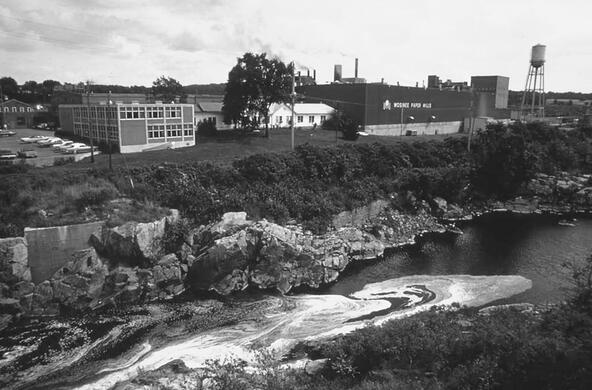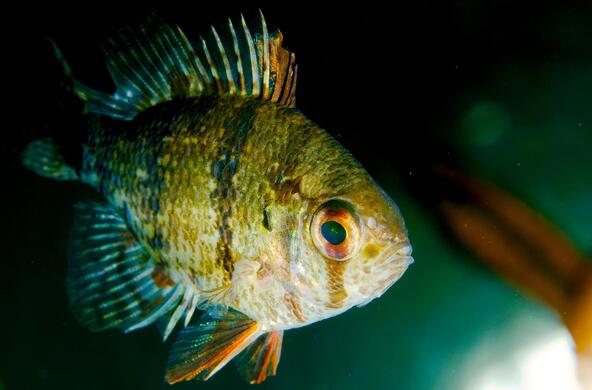
New York's Eric Schneiderman and 10 other attorneys general have sent a letter to U.S. Senate leaders. The letter urges opposition to a bill that would eliminate states' authority to protect waterways from ships' polluted discharges, making it easier for non-native species to invade the Hudson River and Great Lakes.
Schneiderman says the legislation would stop states from taking actions they deem necessary to protect their waters from aquatic invasive species discharged by commercial ships. This occurs when ships dump ballast water Dr. David Strayer is a freshwater ecologist with the Millbrook-based Cary Institute of Ecosystem Studies.
"In my opinion, the Senate bill has the potential to cause further problems with regulations and open the door a little wider to the arrival of harmful species," Strayer says.
One example of an invasive, non-native species already in New York waters is the zebra mussel, about which Strayer has written and studied extensively.
"In the ecosystems where they occur, like the Hudson River or the Great Lakes, they're one of the dominant animals in the ecosystem. In the Hudson, they outweigh all other animals combined. And they cause great changes to the character of our ecosystem. So they affect water clarity and water chemistry and the populations of other plants and animals in the ecosystem. And then they also, of course, cause economic problems by following pipes and boat holes and things like that."
Zebra mussels can clog the water intake pipes of power plants and municipal drinking water facilities. Schneiderman says the Hudson River is infested with more than 100 non-native species. And it was estimated in 2005 that the total environmental and economic impacts of biological pollution in the New York State Canal and Hudson River systems is nearly $500 million per year. John Lipscomb is patrol boat captain and vice president for advocacy for Riverkeeper.
"If the federal government takes away our ability to set laws for commercial vessels and how they scrub their ballast water, we've taken away the rights of the people who live here and cherish this river," Lipscomb says.
He says the effects of Zebra mussels in the Hudson are evident as they take over food sources other fish depend on.
"That same bottom of the food chain is what herring eat, river herring and what shad eat," says Lipscomb. "So we're seen a decline in the size of herring over the past years when zebra mussel became established."
The Commercial Vessel Incidental Discharge Act also would exempt ballast discharges from the federal Clean Water Act. Schneiderman says the bill relegates the U.S. Environmental Protection Agency to an advisory role, and delegates primary responsibility for controlling these discharges to the U.S. Coast Guard. Again, Lipscomb.
"We've often looked to the EPA as the knight in shining armor when the state's environmental protections and environmental laws were not adequate to protect the Hudson," Lipscomb says.
Strayer explains why he believes the attorneys general are concerned about states' authority being stripped in this arena.
"I think you could argue that the federal government has been quite slow in regulating the movement of harmful species into the United in ballast water, in the pet and horticultural trades, through untreated, wood products, and so forth and so on," Strayer says. "And so I think the states have really felt compelled to act in the absence of strong federal action to try to fill some of the gaps."
Schneiderman, a Democrat, says the Republican-sponsored bill that was introduced in January, would provide a rubber stamp for shipping industry interests at the cost of the health of New York waters. There is no such bill in the House. Joining Attorney General Schneiderman's letter to the Senate leadership are the attorneys general of Massachusetts, Vermont, California, Illinois, Maine, Michigan, Oregon, Rhode Island, and Washington.





